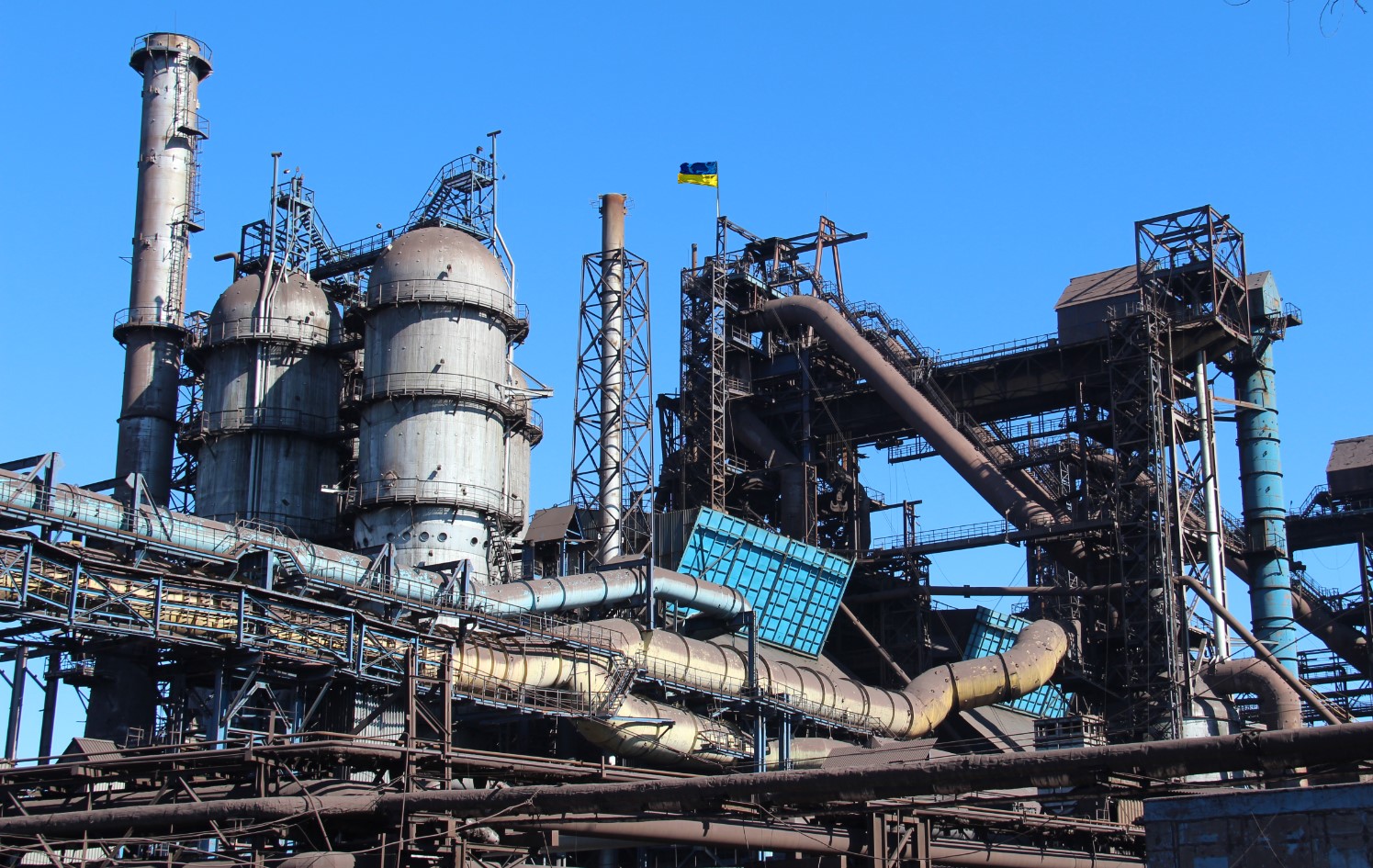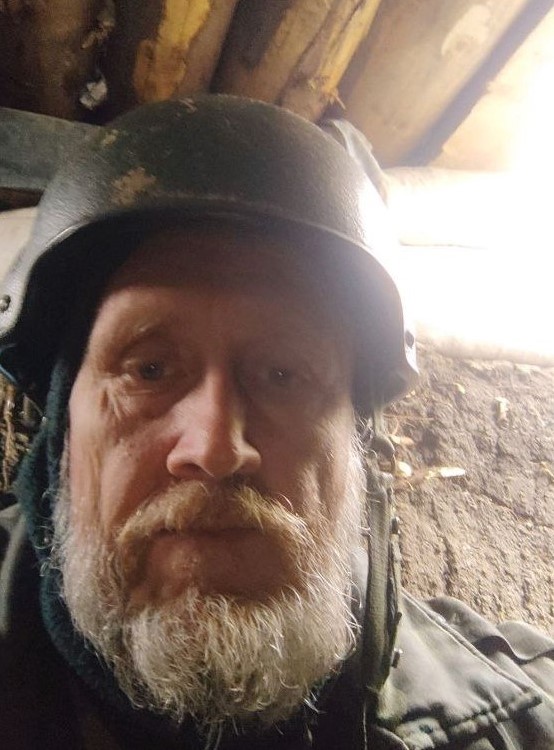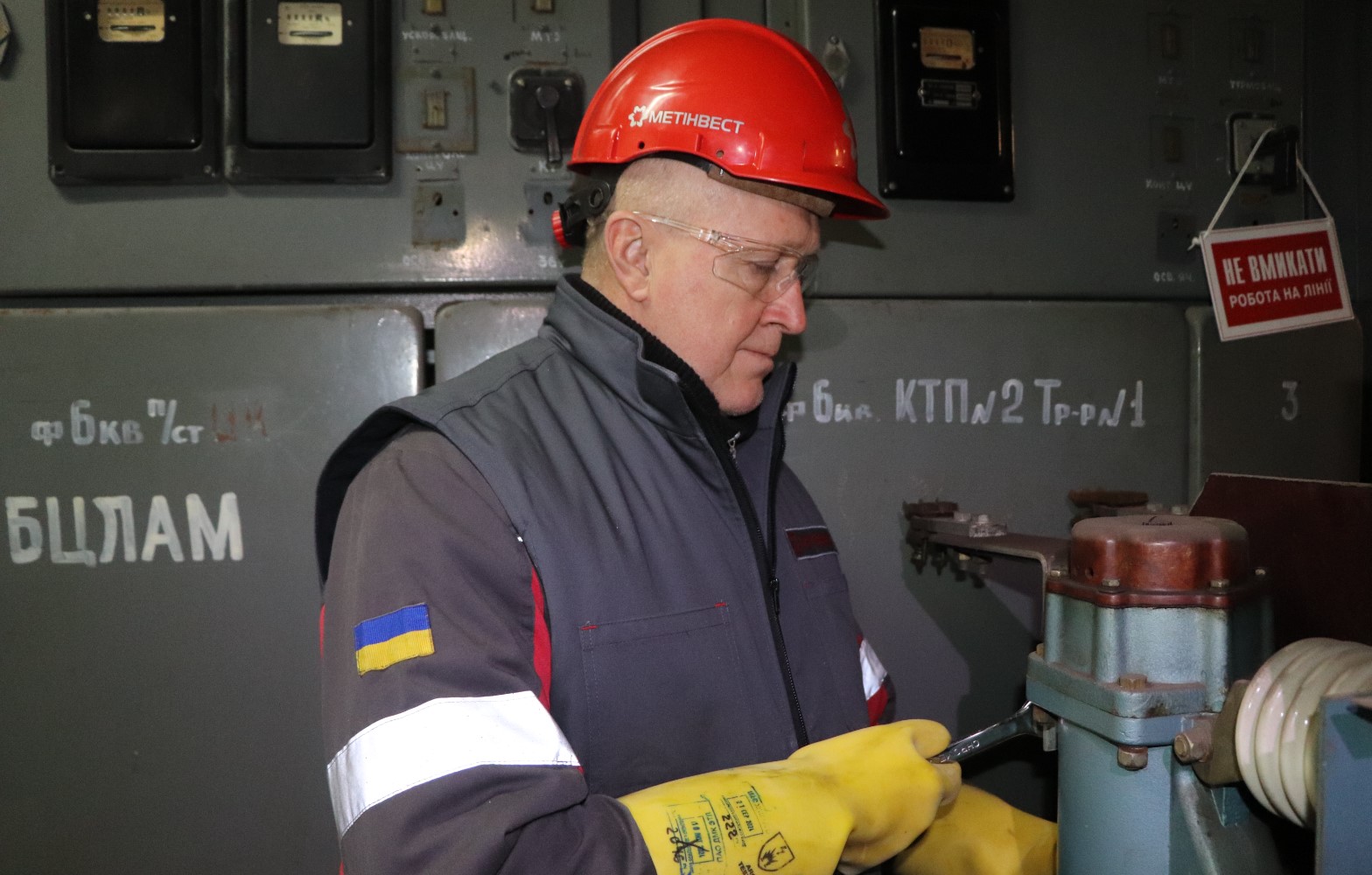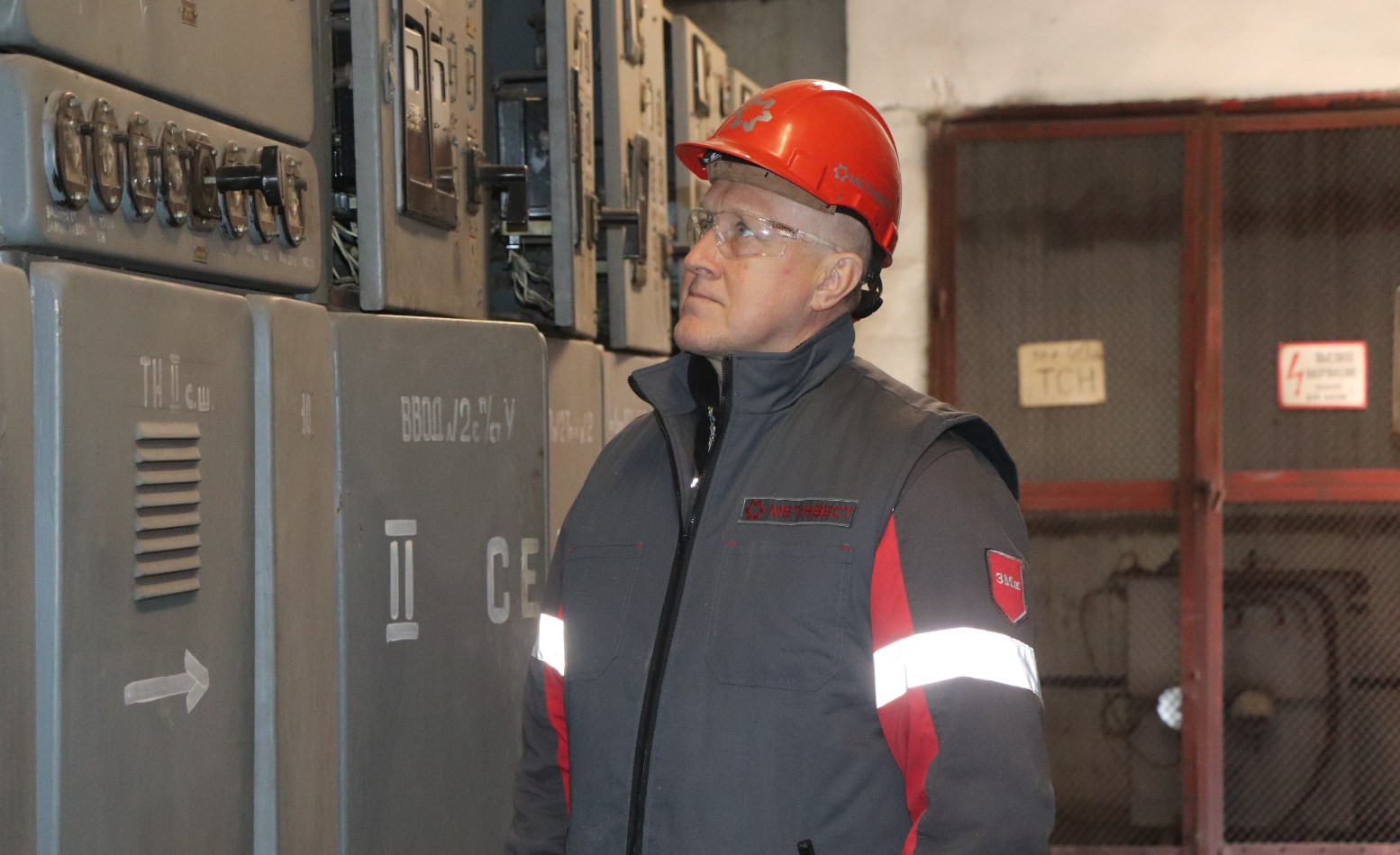Eduard Anotkin, a 56-year-old from Kamianske in the Dnipro region, is a third-generation hereditary metallurgist and an arm-wrestling and weightlifting coach. On the third day of the full-scale war, he went to the military enlistment office and became a volunteer defender. Eduard’s service lasted for a year until he was demobilised after receiving a concussion. He is now a military veteran who has returned to work and civilian society, although he had to undergo retraining and acquire a new profession due to his concussion.
Before serving on the front line, Eduard worked in a blast furnace shop at Kamet Steel. He has since returned to work at the same plant, now in the position of a grade 5 machinist.
Eduard Anotkin is one of 119 veterans employed at the enterprise. In total, Metinvest Group has 518 veterans working at its various enterprises, of whom 482 have been retrained and acquired a new profession.
Hereditary metallurgist
Eduard Oleksandrovych is a third-generation metallurgist. Several generations of his relatives have lived in Kamianske (formerly Dniprodzerzhynsk until 2016). His grandfather worked at Kamet Steel, followed by his father, who dedicated 35 years of his life to the enterprise.

Kamet Steel
Located in Kamianske, Dnipro region, Kamet Steel is a full-cycle metallurgical enterprise. It specialises in the production of continuous cast billets, structural shapes and long products, including rebar, wire rod, balls and sections. Kamet Steel is the world’s only producer of rolled axle shapes, a semi-finished product used to manufacture railway axles. In 2024, Kamet Steel marked its 135th anniversary. Formerly, the plant was known as Dnipro Metallurgical Plant. In 2021, it became part of Metinvest Group along with Dnipro Coke Plant
After completing school, Eduard went to study as a locomotive driver’s assistant. Before and after his service in the army, he worked in this field. Later, he became a metallurgist, like his grandfather and father. He worked at the railway shop and the plant’s security department, and for the last five years before the full-scale war he worked in the blast furnace shop.
In addition to his experience as a metallurgist, he has more than 25 years of teaching experience. From 1992 to 2000, he worked as an arm-wrestling, weightlifting and kettlebell lifting coach at a local sports centre and school. Later, he combined his coaching job with work at a plant. He has the status of a labour veteran.
The veteran said: “When World War 2 began, my grandfather did not evacuate together with the plant, and he was shot by the Germans. Someone killed a German officer in the town, and for this, they shot everyone on the street where he lived. That is why I said from the very beginning of the war that no one would be able to sit it out.”
I just knew that if they came here, I had to be armed. Because I know from my family’s experience what can happen.”
Volunteer defender
On the third day of the full-scale invasion, Anotkin went to the military enlistment office. He was immediately assigned to the Kamianske separate territorial defence battalion, where he was appointed as commander of the rifle unit. In May, he went to fight near Donetsk. While his wife was against his decision, he did what he needed to do. He asked only to take care of his mother, who needed assistance. He did not confess to her about going to war.
Anotkin recalled: “She still doesn’t know that I served in the army. She was always worried about me. When I was a child, she ended up in hospital after every parental meeting. Of course, I always lied to her. When we were deployed to Donetsk in May, I lied and told her that I was assigned from the plant to guard duty at a hospital in Dnipro, and that’s why I couldn’t call and visit often.”

The veteran says he felt the “breath of war” back in 2014. He was ready for war, although he could not fully believe that Russia would do it.
The veteran said. “I have always known that there is no smoke without fire. It is one thing when there is an ultra-left or ultra-right demonstration. But when you see that your opponent has gone to extreme measures, where there are deaths, you don’t stop there.”
In the first days of the war, Anotkin admits, he expected fighting in the town from day to day. He thought that the Russians would reach Kamianske very quickly.
Anotkin recalls his first days in territorial defence: “We literally had two magazines of ammunition each, but all the guys were ready to meet the enemy with Molotov cocktails.”
The defender said: “I expected that there would be a battle in the town three to four days after the invasion began. I didn’t think they would break their teeth against our defenders. I assumed that maybe it would be something similar to the battle of Kruty (a battle that took place in 1918 near the Kruty railway station between a Russian Red Guard unit of 4,000 people and a detachment of Kyiv cadets and Free Cossacks of about 500-600 soldiers — ed.), not more. We survived because the whole country rose up. When I was still standing at the checkpoints in Kamianske, people brought us their last things: warm clothes, food and medicine. It was a common tragedy. I thought to myself: this is the only thing worth dying for because the whole country has united.”
Injuries and demobilisation
Anotkin does not say much about his service near Donetsk. The first months were difficult. The Russians were constantly shelling with various types of weapons, and our guys could not fight back because they simply had nothing: there were not enough weapons and ammunition. That’s where Eduard Oleksandrovych got his concussion. But he did not undergo rehabilitation: his unit was short of people, and he returned to his comrades each time.
The doctors said that after the injury I should have spent 30 days in rehabilitation, and then perhaps there would have been no such consequences. But in three days I was back to the front — I took pills and left.”
Later, the veteran was hospitalised again. That time, the doctors discovered heart problems and told him he had suffered a heart attack without realising it.
The veteran said: “They sent me back for rehabilitation, I spent two days there and returned to the front again. And this was, as they say, the last straw for my health.”
Anotkin was demobilised in May 2023, having been diagnosed with a brain pathology during another hospitalisation. Only then, the veteran agreed to undergo full treatment.
Retraining and a new job
After his discharge from the hospital, Eduard Oleksandrovych could no longer return to his previous job at the blast furnace shop because his health was poor, and his concussion was affecting him. He was offered retraining to become a machinist.
The training for his new speciality lasted five months. When asked whether it was difficult to master a new profession, the veteran jokes that it was still easier than army life. He describes his adaptation to civilian life in the same way.

Eduard Anotkin became a machinist: a specialist who assembles, adjusts and repairs machinery and mechanisms
The veteran said: “Compared with what is happening in the army, this is all trivial. Why should I complain? My comrades in arms call me and ask: how is your health? And I say: guys, shouldn’t I be the one who’s asking how you are doing there? Everything is fine here. I can’t complain about anything.”
Colleague support
The veteran’s current manager, Viktor Bolotov, head of the networks and substations department, describes Eduard Oleksandrovych as a purposeful and responsible employee.
The manager said: “I liked him immediately because he is a straightforward and frank person. It is now harder to get young people to work. But with Eduard, we immediately had a mutual understanding because he is a mature and experienced person. He has a great interest in self-realisation and has golden hands. Any work he takes on is always completed with an A+. I am very pleased with him. There is another veteran in our shop, and my personal feeling is that these people will change the country, and it will be a different society. This is an entirely different level of attitude to work, different values, they are more responsible.”
According to Viktor Olehovych, anyone can undergo retraining at the enterprise if they have the desire.
The head of the shop said: “We’ve had cases where women with confectionary educations came here and became electricians.”
Viktor Bolotov said: “I try to provide people with the opportunity to show themselves, to realise themselves. There is a will, and we can teach everything. We provide both theoretical knowledge and practical experience. The learning process is much faster here at the enterprise.”
Returning to life after the front line
According to Ivan Goltvenko, director of personnel and social affairs at Kamet Steel, today everyone should understand that it is not the veteran who adapts to society, but society that should help the veteran return to life beyond the front line.
The personnel director said: “Talking to veterans who returned to the enterprise, we realised that it was important to provide them with the opportunity to adapt to a different life, understand what had changed during their absence, and help them get used to a different reality. Today, we teach managers and the team how important it is not to traumatise, not to be intrusive, not to ask questions that hurt, not to harm. And we tell them what exactly is needed for the comfortable social adaptation of those who have returned.”
At the plant, people keep in touch with those who are on duty and their families. Mobilised workers are provided with bulletproof vests, helmets and winter kits. Their families receive food packages and hygiene kits.
Ivan Goltvenko said: “We involve our employees in collecting aid for our defenders, including sweets, medicine during the cold season, and assistance in purchasing specialised equipment and donating blood and plasma. Once, one of the veterans admitted that children’s drawings warmed his heart and soul the most at the front. That’s why when we send parcels to defenders, we keep putting them there. Recently, a young defender, Mykyta, who received a parcel, wrote: ‘Thank you for the drawings.’”

Eduard Oleksandrovych has the status of labour veteran. He is now also a veteran of the worst war since World War 2
Veteran Eduard Anotkin also helps to collect aid for the military at the front. Thanks to a retraining programme and the support of his colleagues, he has managed to adapt at least partly to life on the home front. Eduard’s story is not only an example of a successful reintegration of a veteran, but also a testament to the importance of social support for defenders returning from the front.
